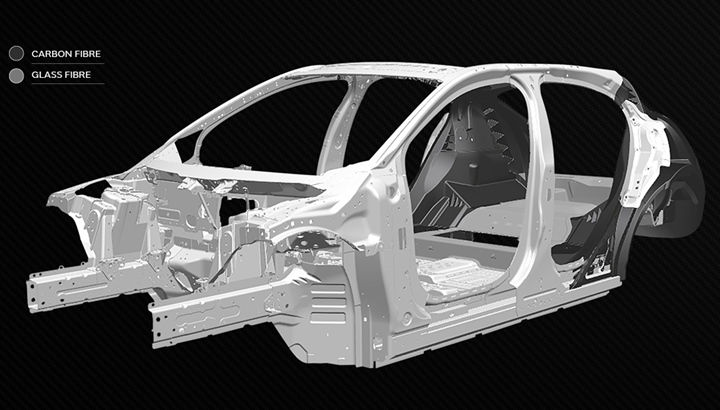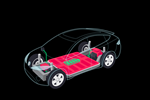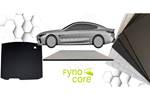Jaguar Land Rover undertakes composite program for EV lightweighting
U.K. Tucana project plans to replace steel and aluminum with composites for vehicle structures.

Photo Credit: JLR
Jaguar Land Rover (JLR, Coventry, U.K.) has long been a proponent of lightweighting vehicles through the use of aluminum, but the company is clearly material-neutral as it is leading a consortium of companies and researchers in the U.K. Tucana project, a four-year undertaking with the objective of developing lightweight structures.
Jaguar Land Rover’s objective is to reduce vehicle stiffness by 30%, cut weight by 35 kilograms (77 pounds) and improve the crash safety structure. Much of this is to be achieved by replacing steel and aluminum structures with those made with composites.
Lighter weight structures are important for electric vehicles, as reduced mass can mean either smaller batteries or extended range.
Marcus Henry, research manager at Jaguar Land Rover, says, “This project will allow the true environmental credentials of electric vehicles to be realized by enabling wider adoption of the technology and will propel Jaguar Land Rover and the U.K. supply chain into a world-leading position in low-carbon technology.”
An overarching goal is to cut CO2 emissions by 4.5 million tonnes (4.96 million tons) between 2023 and 2032.
Other members of the consortium are: Warwick Manufacturing Group (WMG), Expert Tooling & Automation, Broetje-Automation UK, Toray International UK, CCP Gransden and The Centre for Modelling & Simulation (CFMS).
Jaguar Land Rover expects to have a fleet of Tucana test vehicles on the road by 2022.
Jaguar Land Rover currently offers one full EV, the Jaguar I-PACE, but the Jaguar brand and the Land Rover brand offer hybrid versions of several models.
Related Content
-
Bio-based acrylonitrile for carbon fiber manufacture
The quest for a sustainable source of acrylonitrile for carbon fiber manufacture has made the leap from the lab to the market.
-
The potential for thermoplastic composite nacelles
Collins Aerospace draws on global team, decades of experience to demonstrate large, curved AFP and welded structures for the next generation of aircraft.
-
PEEK vs. PEKK vs. PAEK and continuous compression molding
Suppliers of thermoplastics and carbon fiber chime in regarding PEEK vs. PEKK, and now PAEK, as well as in-situ consolidation — the supply chain for thermoplastic tape composites continues to evolve.

.jpg;width=70;height=70;mode=crop)














